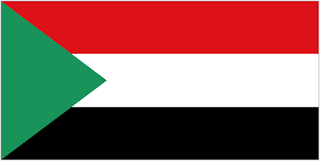Christian Solidarity Worldwide (CSW) is calling on the international community to facilitate and guarantee an official referendum on Abyei’s future after an unofficial plebiscite resulted in 99.9% of participants voting to join with South Sudan.
On 31 October, 98% of registered Ngok Dinka voters participated in an unofficial vote, termed the “Peoples’ Referendum”, which was organised by the Ngok Dinka General Conference. In accordance with the stipulations of the 2005 Comprehensive Peace Agreement (CPA) that ended the Sudanese civil war and a subsequent ruling by the Permanent Court of Arbitration (PCA), voting was open to the nine Ngok Dinka Chiefdoms and all permanent residents of the Abyei Area. However, permanent residents from the Arab Misseriya tribe refused to participate in the referendum.
According to the CPA, the Abyei referendum should have occurred in tandem with South Sudan’s referendum on independence, which took place on 9 January 2011. However, it was postponed due to ongoing disagreements between Khartoum and South Sudan over voter eligibility. The nomadic Arab Misseriya tribe, which accesses certain pasture-lands in Abyei for part of each year, wish to be accorded full voting rights in the referendum. However, according to the CPA’s Abyei Protocol and the international legal ruling of the PCA, only the Ngok Dinka and permanent residents may vote.
Despite lacking official recognition, the plebiscite is a significant indication of the desire of the Ngok Dinka people to exercise self determination. In a statement issued on 1 November, the South Sudan Council of Churches (SSCC) announced its support for the referendum, calling on the African Union (AU), United Nations (UN) and the governments of Sudan and South Sudan to formally recognise its outcome.
A referendum was scheduled to take place last month in accordance with a 2012 Proposal by the AU’s Abyei mediator, Thabo Mbeki, with voting limited to the Ngok Dinka and permanent residents of Abyei. The Mbeki Proposal also contains provisions protecting the rights of others living in and migrating through Abyei. The African Union Peace and Security Council (AUPSC) is on record as stating that if the issue is still unresolved by early December, steps would be taken to endorse the Mbeki Proposal as final and binding.
CSW’s Chief Executive Mervyn Thomas said, “This truly is a significant moment for the Ngok Dinka Chiefdoms. After decades of war and over two years of stalling they have finally had their say, and the resounding result cannot be disregarded. The international community in general, and the AU in particular, must either recognize the results of this referendum or facilitate an official one without delay, while proactively countering any attempts to disrupt it. Alternatively, if the December deadline also elapses, the AU, supported by the UN, must begin the process of endorsing the Mbeki Proposal as final and binding immediately and speedily. In addition, as many of Abyei’s residents who were displaced by fighting in the area are slowly returning, international humanitarian assistance must be increased as a matter of urgency.”
On 31 October, 98% of registered Ngok Dinka voters participated in an unofficial vote, termed the “Peoples’ Referendum”, which was organised by the Ngok Dinka General Conference. In accordance with the stipulations of the 2005 Comprehensive Peace Agreement (CPA) that ended the Sudanese civil war and a subsequent ruling by the Permanent Court of Arbitration (PCA), voting was open to the nine Ngok Dinka Chiefdoms and all permanent residents of the Abyei Area. However, permanent residents from the Arab Misseriya tribe refused to participate in the referendum.
According to the CPA, the Abyei referendum should have occurred in tandem with South Sudan’s referendum on independence, which took place on 9 January 2011. However, it was postponed due to ongoing disagreements between Khartoum and South Sudan over voter eligibility. The nomadic Arab Misseriya tribe, which accesses certain pasture-lands in Abyei for part of each year, wish to be accorded full voting rights in the referendum. However, according to the CPA’s Abyei Protocol and the international legal ruling of the PCA, only the Ngok Dinka and permanent residents may vote.
Despite lacking official recognition, the plebiscite is a significant indication of the desire of the Ngok Dinka people to exercise self determination. In a statement issued on 1 November, the South Sudan Council of Churches (SSCC) announced its support for the referendum, calling on the African Union (AU), United Nations (UN) and the governments of Sudan and South Sudan to formally recognise its outcome.
A referendum was scheduled to take place last month in accordance with a 2012 Proposal by the AU’s Abyei mediator, Thabo Mbeki, with voting limited to the Ngok Dinka and permanent residents of Abyei. The Mbeki Proposal also contains provisions protecting the rights of others living in and migrating through Abyei. The African Union Peace and Security Council (AUPSC) is on record as stating that if the issue is still unresolved by early December, steps would be taken to endorse the Mbeki Proposal as final and binding.
CSW’s Chief Executive Mervyn Thomas said, “This truly is a significant moment for the Ngok Dinka Chiefdoms. After decades of war and over two years of stalling they have finally had their say, and the resounding result cannot be disregarded. The international community in general, and the AU in particular, must either recognize the results of this referendum or facilitate an official one without delay, while proactively countering any attempts to disrupt it. Alternatively, if the December deadline also elapses, the AU, supported by the UN, must begin the process of endorsing the Mbeki Proposal as final and binding immediately and speedily. In addition, as many of Abyei’s residents who were displaced by fighting in the area are slowly returning, international humanitarian assistance must be increased as a matter of urgency.”

No comments:
Post a Comment